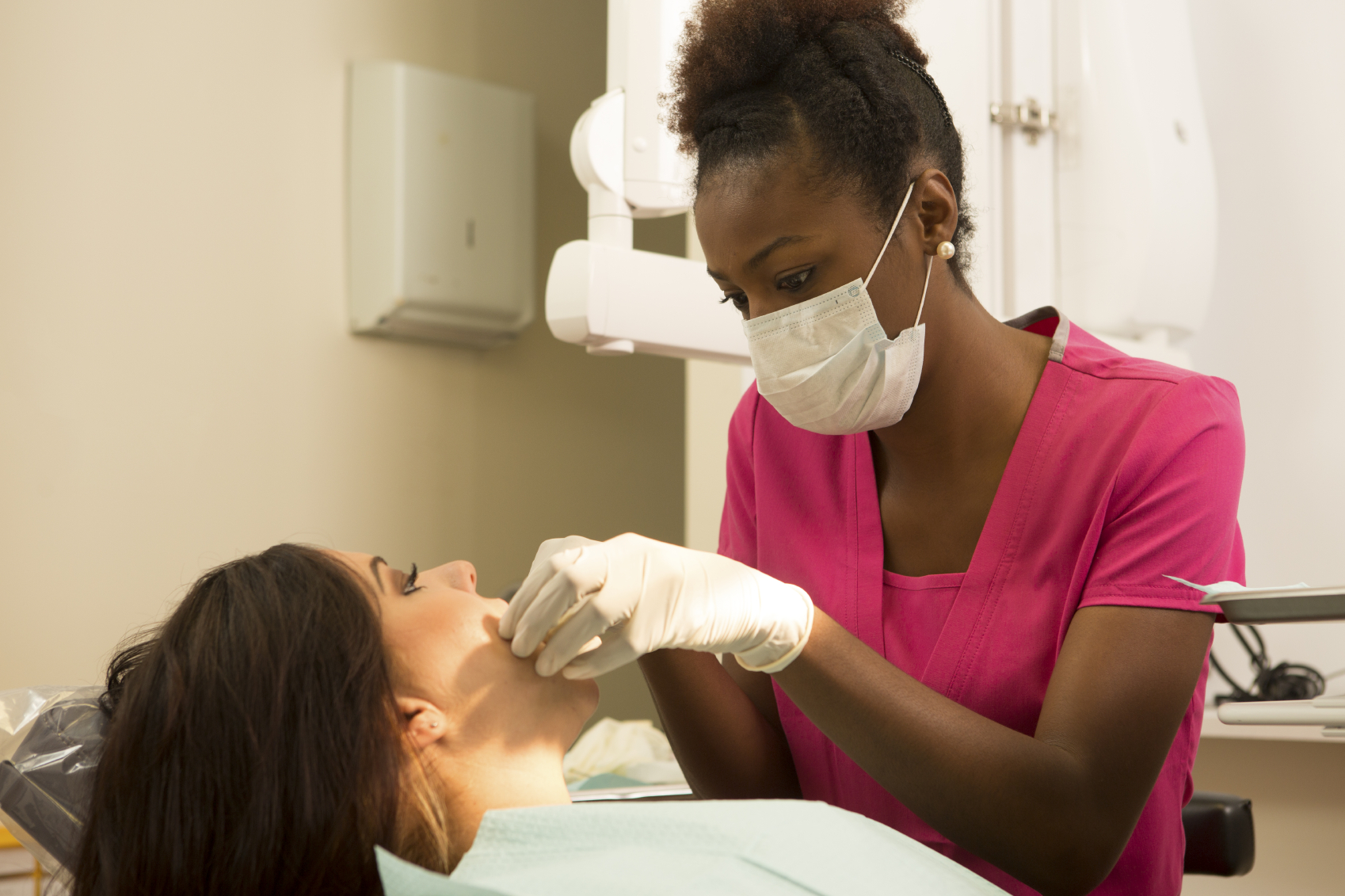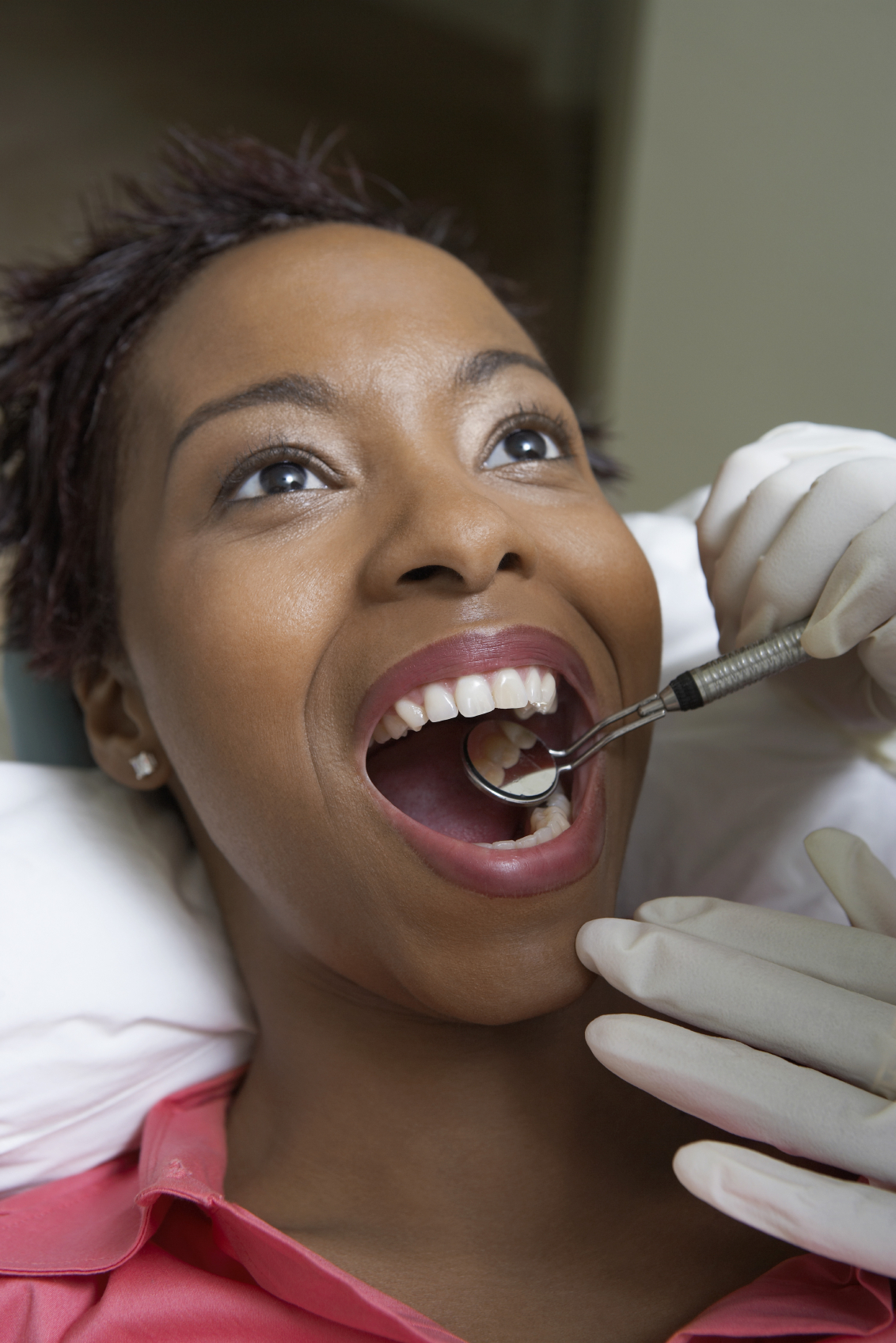
You’ve read all the books, baby-proofed your home and heard lots of (solicited and unsolicited) advice from other parents, but did you know a healthy mouth is part of a healthy pregnancy?
Many expectant moms don’t know that their oral health can impact their baby. Some may even have heard misinformation about dental care and treatment during pregnancy. Dr. Karen Wells, an OB from Center for Women’s Health at Evergreen, addresses some common questions about oral health care during pregnancy.
So, is it safe for women to visit the dentist while pregnant?
Absolutely. It’s both safe and recommended. It's especially important to treat dental problems during pregnancy because moms can pass cavity-causing germs to babies.
Really? How does that happen?
Most people don’t know that cavities are caused by germs and these cavity-causing germs are infectious. The germs can actually be spread via saliva (typically from moms to babies) by sharing food, utensils or even kisses. That’s why it’s so important for pregnant women to get any cavities treated before giving birth. Moms should kiss their babies but they need to make sure they’re cavity-free!

How common are tooth decay and gum disease among pregnant women?
About 40 percent of pregnant women have tooth decay and/or gum disease. The good news is oral disease is almost entirely preventable. Going to the dentist during pregnancy can ensure a healthy pregnancy and greatly reduce the chances a baby will get cavities during the first few years of life.
How does poor oral health effect a mother and her unborn baby?
Poor oral health is associated with preterm labor, low birth weight babies, preeclampsia and makes it more difficult to control gestational diabetes. Additionally, an infection in the mouth can spread to through the body, causing serious health problems.
What should women eat during pregnancy to help their child's future oral health?
Women should eat foods high in protein and fiber, like meats, cheeses, beans, nuts, fruits and vegetables. Avoid starchy, sugary foods and sweetened drinks (including juice, soda and sports drinks). They feed the bacteria that causes cavities.
What else should pregnant women do to take care of their oral health?
Brush twice a day with fluoride toothpaste, floss daily and drink plenty of water (fluoridated is best). They can also use xylitol, fluoride and antibacterial rinses prescribed by a dentist or doctor.
Is it true that chewing gum with the sweetener Xylitol can help reduce cavity-causing bacteria?
Yes. Xylitol is a natural sweetener that reduces cavity-causing germs. Pregnant women should chew Xylitol gum or candy after eating. It is calorie-free and has no effect on blood sugar.
Once baby has arrived, what are some things parents can do to keep their little one's teeth and gums healthy?
Do not put babies to bed with bottles or cups full of milk, formula or sugary drinks. They can lead to significant tooth decay. See other helpful parent tips here.
When should children have their first oral health checkup?
Babies should have their first oral health checkup by a dentist or a medical provider by age 1. If a child is cavity-free before age 2, they are more likely to have good oral health for life.
Can babies use toothpaste with fluoride in it?
Yes! Fluoride strengthens teeth and reduces tooth decay. Use a tiny smear of fluoride toothpaste when baby’s first tooth appears, then a pea-sized amount for age 3 and up.
Originally published by The Mighty Mouth











